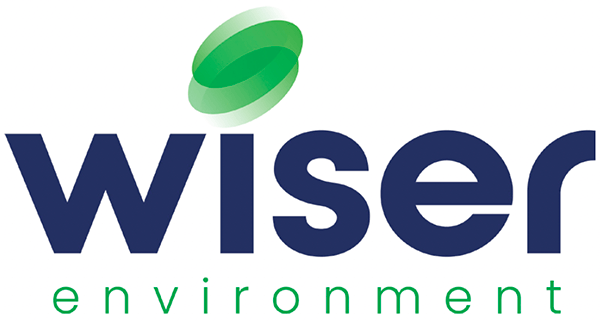Waste Management Advice
Wiser Environment provides advice on clinical and other waste management for the healthcare industry; helping NHS Trusts to manage their waste and reduce costs. Additionally, Wiser helps institutions apply waste management best practice that reduces the risk of infection or environmental harm. Concerning clinical waste, one of the biggest challenges healthcare organisations face is controlling, segregating and minimising disposal cost on the wide range of waste types produced. Wiser has a longstanding track record of providing best practice advice to healthcare operators; ensuring treatment of each waste stream in the most environmentally and cost-friendly way possible.
Background
All healthcare institutions produce waste, often a significant proportion of the overall budget. This includes hospitals, dental practices, veterinary services and GP surgeries. Such activities likely generate clinical waste that can potentially contain hazardous, infectious or toxic properties. To ensure the protection of people and the environment, organisations should implement effective management systems and procedures to control waste. Broadly, clinical wastes are classified into the following waste types:
- Offensive waste, which can be municipal or healthcare waste, is potentially unpleasant to those who handle it. Importantly, offensive waste cannot be deemed clinical, infectious or to contain pharmaceutical or chemical substances (18-01-04 / 20-01-99).
- Plasters, dressings, disposable clothing and other related items that are non-infectious (18-01-04).
- Medicines that are acutely toxic, carcinogenic, mutagenic or toxic for reproduction are considered to be cytotoxic or cytostatic medicines. Other medicines are non-hazardous (18-01-08* / 18-01-09).
- Sharps like scalpels, blades and sharp instruments are considered as hazardous and may contain cytotoxic or cytostatic medicines (18-01-08* and 18-01-03* / 18-01-03* and 18-01-09 / 18-01-03*).
- Anatomical wastes are materials that are recognisably human, such as body parts and organs. Depending on whether the wastes are infectious or chemically preserved, anatomical wastes can be either hazardous or non-hazardous (18-01-03* / 18-01-02 / 18-01-06* and 18-01-02*/03).
- Bagged clinical waste such as infectious clinical waste (18-01-03* / 18-01-03* and 18-01-06*).
Rising costs
Healthcare institutions produce a wide range of waste streams. Correct classification and management of these wastes will reduce costs and environmental risk. Notably, NHS Trusts have seen the cost of controlling their waste increase significantly over time.
According to reporting by the Estates Returns Information Collection, 2019 peaked with £115 million spent on managing waste across NHS Trusts in England. Wiser Environment predicts that the impact of COVID-19 will result in waste management costs increasing further in 2020 and 2021. As a result, reducing the cost of waste management is paramount.

Sourced from the Estates Return Information Collection data set which comprises of information relating to the costs of providing and maintaining the NHS Estate.
Practical clinical waste management advice
To help support healthcare institutions – such as Derby Royal Infirmary, Queen Elizabeth Hospital Woolwich and Walsgrave Hospital Coventry – the senior team at Wiser Environment provided expert advice and training. Wiser reported on waste management performance across a selection of NHS Trusts and recommended best practice solutions.
Our work included categorising waste storage at the point-of-production to encourage and improve waste segregation. The impact on costs further downstream in the process is key at this stage; ensuring that those types that are expensive to dispose of are not mixed with other less hazardous wastes and to avoid rejection at waste treatment facilities due to mischaracterisation. For example, incinerators rejecting clinical wastes due to the presence of aerosols. The nature and volume of certain waste types can increase transportation costs and hence advice was provided on equipment for volume reduction and pre-treatment.
In addition to the best practice solutions, the team at Wiser also provided waste awareness training for hospital management. Here, Wiser highlighted practical waste management solutions concerning: types of waste produced within the NHS Trust ecosystem, usage of packaging recovery notes to evidence recycling activity, outlining of the institution’s duty of care responsibilities, the cost of improper waste management and waste classification and segregation.
Waste Sampling & Characterisation
For the purpose of building a long-term client relationship – a target to which Wiser always aims – the team also provided healthcare institutions with a waste minimisation and recycling initiative. The objective here was to identify appropriate legal frameworks, assess the management of waste and propose solutions to reduce the amount of waste sent to incineration. To accomplish this, Wiser conducted a sampling and characterisation analysis; investigating the handling of ward level waste throughout the facility.
Wiser found that clinical waste comprised approximately 40% of the total waste produced within the hospitals. Furthermore, such clinical wastes were sent for disposal at an incinerator. Waste sampling found that 15% of the clinical waste stream was composed of non-clinical items. These items included uncontaminated tissues used for hand drying, plastics, paper and other such recyclable wastes that do not require incineration. As a recommendation, Wiser suggested that institutions should encourage non-clinical waste recycling through point-of-production segregation systems and awareness training.
Cost-saving guidance for healthcare institutions
As a result of the aforementioned analysis, Wiser’s healthcare clients were able to minimise costs and better protect the environment. Through waste awareness training, duty of care guidance, point-of-production segregation systems and waste classification support, healthcare institution were able to better understand how to control waste streams within their business.
Wiser Environment has extensive experience in developing clinical waste management solutions for the healthcare industry; providing cost-effective methods to reduce waste management costs and protect the environment. To hear more about how Wiser can help organisations expand and grow their business, contact Wiser Environment or call on 01480 462232.


